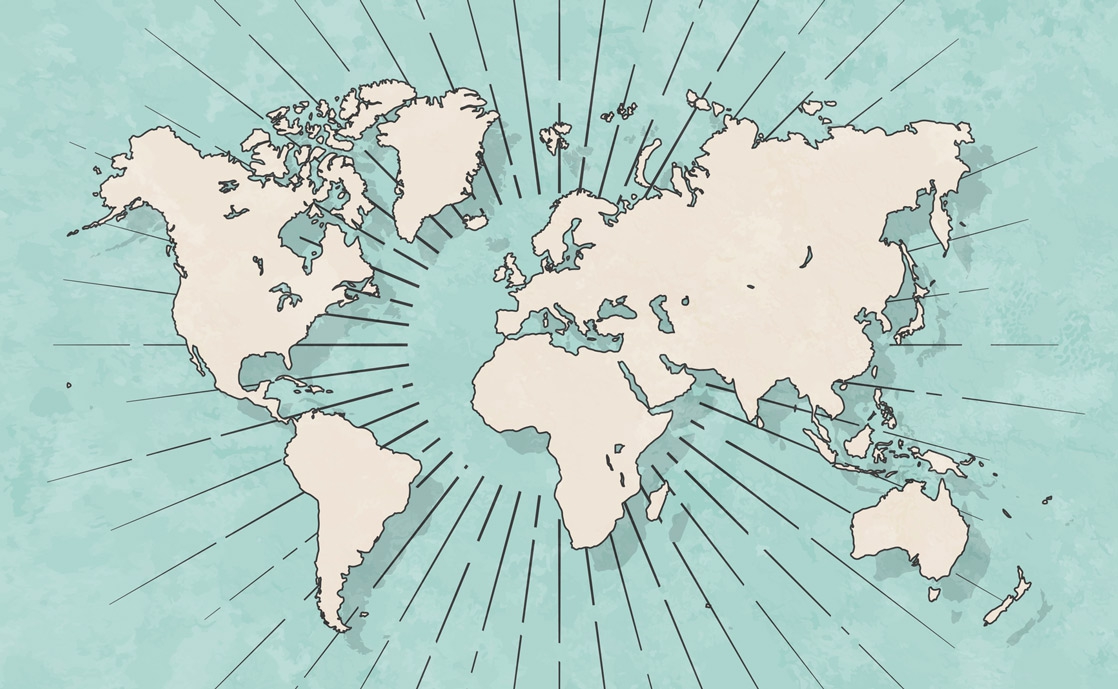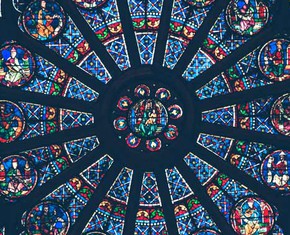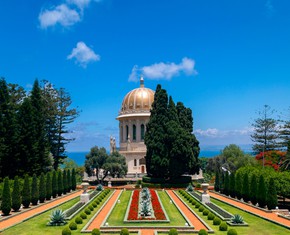The views expressed in our content reflect individual perspectives and do not represent the authoritative views of the Baha'i Faith.
Does every one of our cultures and civilizations have its own Faith? Yes, anthropologists and historians have determined. Religion is a human universal—no known society has ever existed without it.
Religion has profoundly shaped all human cultures, not only because every organized society has religious beliefs and practices, but because the cultural and spiritual forces religion initially creates tend to unite societies and hold them together. Of course, not every person in every society believes in or practices its dominant religion, but as a whole, even those without any adherence to a Faith or spiritual tradition help support the main thrust of the culture itself.
Baha’u’llah, the prophet and founder of the Baha’i Faith, attributed this universal human expression of religion and spirituality to a continual, ongoing process of divine education called progressive revelation.
Progressive revelation, one of the core Baha’i teachings, views religious and spiritual truth as one, revealed by the Creator over time in a progressive and cyclical way through a series of divine messengers. In Gleanings from the Writings of Baha’u’llah, he wrote that through this successive historical system of spiritual guidance, in every human society, those messengers proclaimed truth to all peoples, “to the cities of all nations:”
Give ear, O My servant, unto that which is being sent down unto thee from the Throne of thy Lord, the Inaccessible, the Most Great. There is none other God but Him. He hath called into being His creatures, that they may know Him, Who is the Compassionate, the All-Merciful. Unto the cities of all nations He hath sent His Messengers, Whom He hath commissioned to announce unto men tidings of the Paradise of His good pleasure, and to draw them nigh unto the Haven of abiding security, the Seat of eternal holiness and transcendent glory.
What does this say about the origins of religion? Does it literally mean that “the cities of all nations” have received divine messengers and founders of Faith?
Probably not. Instead, it most likely conveys a symbolic meaning, as does much of Baha’u’llah’s revelation. Rather than a literal interpretation, then, we can think of it as figurative one, a prophetic confirmation of the historical fact that all human cultures throughout history have benefitted from the teachings of a spiritual messenger:
In the East the light of His Revelation hath broken; in the West have appeared the signs of His dominion. Ponder this in your hearts, O people, and be not of those who have turned a deaf ear to the admonitions of Him Who is the Almighty, the All-Praised. Let the Breeze of God awaken you. Verily, it hath wafted over the world. – Tablets of Baha’u’llah.
The Baha’i teachings continually refer to this call of God being raised in multiple places and in different eras around the world. In his writings Baha’u’llah confirmed that everyone, no matter their origins, has the opportunity to access that call:
Men at all times and under all conditions stand in need of one to exhort them, guide them and to instruct and teach them. Therefore He hath sent forth His Messengers, His Prophets and chosen ones that they might acquaint the people with the divine purpose underlying the revelation of Books and the raising up of Messengers, and that everyone may become aware of the trust of God which is latent in the reality of every soul.
When asked about this phenomena by an early Baha’i physician named Amir Khan, who was curious about the Indigenous religions of the Americas in the Western Hemisphere, Abdu’l-Baha wrote:
Undoubtedly in those regions [the Americas] the Call of God must have been raised in ancient times, but it hath been forgotten now.
But for a whole host of reasons—colonialism, enslavement, disease, war, and genocide primary among them—we now have limited knowledge about the Indigenous beliefs that arose among the peoples of the Earth’s Western hemisphere. Typically, those of us without the advantage of an Indigenous background, upbringing, or tradition have learned very little about those spiritual messengers and their wisdom. From a Baha’i perspective, then, the spiritual education of those of us who live in the Western world seems incomplete until we’ve attempted to understand the religious traditions and practices of our Native neighbors. Abdu’l-Baha made this clear in a talk he gave in Paris:
A star has the same radiance if it shines from the East or from the West. Be free from prejudice, so will you love the Sun of Truth from whatsoever point in the horizon it may arise! You will realize that if the Divine light of truth shone in Jesus Christ it also shone in Moses and in Buddha. The earnest seeker will arrive at this truth ….
The Baha’i teachings, which call for the unity of all religions—and not just those that originated in the global East—encourage us all to learn more about Indigenous traditions and spiritual messengers from the cities of all nations.
















Comments
Sign in or create an account
Continue with Googleor